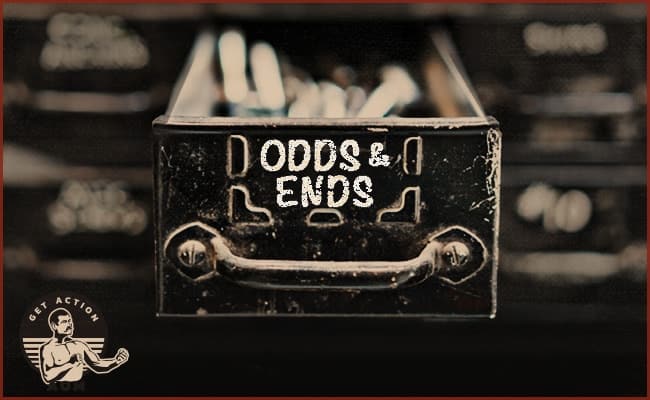
Moby Dick by Herman Melville. This yr I’ve been re-reading classics I first learn in highschool to see how they maintain up and what I take into consideration them now as a middle-aged man. Most not too long ago on the docket was Moby Dick, a guide I final learn in tenth grade English class, the place I’ll admit I relied closely on CliffsNotes. Studying it once more twenty-five years later has been a very completely different expertise. What appeared like a tedious slog by whaling trivialities as an adolescent now reveals itself as an intentional profile in obsession. Melville’s unusual digressions and technical passages about whale anatomy, ships, and harpoons aren’t bugs however options that slowly pull you into the guide’s hypnotic orbit. It’s a bizarre, fantastic guide that works in your mind in surprising methods. It was additionally cool to see how the guide influenced one among my favourite fashionable writers, Cormac McCarthy. If the final time you learn Moby Dick was in highschool, I extremely suggest you give it one other learn as an grownup. It’s going to hit completely different, and also you received’t be upset.
So You Wanna De-bog Your self. I stumbled throughout this improbable article in regards to the psychology of feeling caught in life — such as you’re standing in a swampy lavatory that stretches so far as the attention can see. Adam Mastroianni breaks down the three major forces that hold us on this metaphorically leg-sucking mud: inadequate activation vitality (like ready for the right answer as a substitute of taking motion), unhealthy escape plans (like pondering you’ll magically strive more durable sooner or later), and self-created snares (like taking part in an unattainable sport the place it’s important to be extra profitable than your most profitable good friend). What I like about this text is how Mastroianni cash memorable phrases for these patterns, like “gutterballing” (making progress however on different individuals’s priorities), “declining the dragon” (avoiding obligatory confrontations that will really really feel satisfying to tackle), and “hedgehogging” (refusing good recommendation once you’re in a funk). It’s the uncommon piece of recommendation writing that’s sensible, insightful, and genuinely humorous all of sudden. It jogged my memory a whole lot of the “gumption traps” Robert Pirsig writes about in Zen and the Artwork of Motorbike Upkeep.
King of Kong: A Fistful of Quarters. I watched this 2007 documentary in regards to the intense rivalry over the Donkey Kong world document greater than a decade in the past, however I nonetheless give it some thought in the present day. The movie follows Steve Wiebe, a laid-off Boeing engineer, as he makes an attempt to dethrone Billy Mitchell, a sizzling sauce entrepreneur and the longtime record-holder. Along with his completely feathered mullet and haughty perspective, Mitchell comes proper out of central casting for a film villain. In a wild postscript to the movie’s authentic drama, Mitchell was stripped of all his data in 2018 when it was found he had cheated his option to the highest. Whereas watching grown males obsess over a 1981 online game is fascinating sufficient, data of the scandal provides an additional layer to the movie’s exploration of ambition, validation, and what drives guys to pursue such area of interest types of achievement.
Greys Wool Outside Slipper Boots. When the temperature drops, it’s time to bust out my trusty Greys slipper boots. I’ve had them for years now, they usually hit that excellent candy spot between home shoe and precise footwear; they’re cozy sufficient to putz round the home in, however sturdy sufficient to put on whereas dropping the children off at college or working right into a fuel station. The rubber sole means you don’t have to do this awkward dance of adjusting sneakers simply to step outdoors, whereas the wool retains your toes cozy and heat whether or not indoors or out.
Over on our Dying Breed publication, we printed Sunday Firesides: Dwell Life in Day-Tight Compartments and A New Form of Monasticism: An Introduction.
Quote of the Week
He who has choice of character sufficient to talk a unpleasant reality, is each bolder and milder than he who nibbles in a low voice, and by no means ceases nibbling.
—Johann Kaspar Lavater
This text was initially printed on The Artwork of Manliness.







